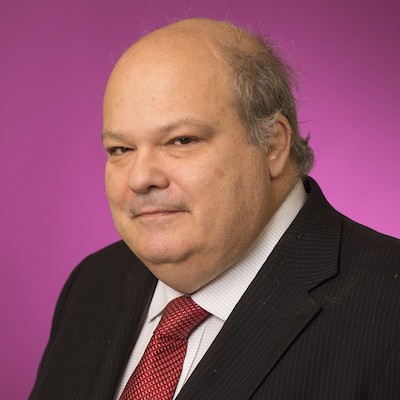Helping People with Mental Illness Earn a Living Wage and Develop a Career
Many people living with serious mental illnesses such as schizophrenia, bipolar disorder, and major depression are living lives of “quiet desperation”. At least 5/6th of those affected are not in the workforce -- dooming them to a life of poverty -- which is associated with a wide range of other negative outcomes including social isolation, poor overall health, and reduced longevity. Dr. Kenneth Gill, Associate Dean of Faculty Development and Chair of the Psychiatric Rehabilitation Department at Rutgers University, studies the ways to sustainably empower individuals to get their education or job training, to enter and remain in the workforce from a young age, and earn a living wage. His work brings awareness to the true issues facing individuals with serious mental illness while developing solutions to improve their quality of life.
With the strong belief that “we must find a means of improving quality of life, reducing suffering, and increasing life span” for those affected by serious mental illness, Dr. Gill has devoted his career to creating opportunities for individuals with serious mental illness and developing trainings for healthcare professionals who aid them in their employment searches. Dr. Gill’s unique approach brings breadth and depth to issues affecting persons with serious mental illness and their overall community integration and quality of life. Additionally, by working closely with experienced providers of psychiatric rehabilitation services, Dr. Gill’s work always has an aim of application. Therefore, his research works to create practical solutions to pressing problems. In so doing, he also is able to create sustainable interventions for people with serious mental illness so that problems can be solved before they are too great to overcome.
Current research includes:
- Employment Opportunities: Persons with serious mental illness often struggle to find employment or to find the resources that can direct them to employment. Dr. Gill develops support opportunities for persons with serious mental illness to get connected to long-term employment and training.
- Career Development: Dr. Gill’s efforts to improve access to employment for persons with serious mental illness extend to educating healthcare professionals about best practices in developing resources for persons in need of employment. His research helps to train tomorrow’s practitioners to support persons in the most effective ways.
- Co-Morbid Disorders: Often persons with serious mental illness have multiple disorders simultaneously. These co-morbid disorders can make treatment and self-management more challenging for persons with serious mental illness. Dr. Gill helps to involve allied health professionals in the care of persons with serious mental illness.
- Peer Education: Sometimes the best way to assist an individual in recovery is by providing them with peers that have had similar experiences and successfully navigated the experience. Dr. Gill studies the best way to prepare peer educators and puts these best practices to work in applied settings.
Bio
When Dr. Kenneth Gill was a child, his father talked to him about his work. He was a social worker and involved with deinstitutionalization in New York. He described how it was not going very well and that he foresaw more problems in the future. Dr. Gill studied psychology as an undergraduate and found that his profession and the other helping professions did not spend sufficient time and effort working with individuals with severe mental illness and indeed his father’s hypotheses about the future had come true.
Later, working in community mental health in Newark, Dr. Gill saw that so much needed to be done, and at the time, the best practitioners had not yet identified how to best prepare individuals with severe mental illness for the workforce. At this time, Dr. Gill decided to devote his own career to this work for both the challenge and the need within society. Interestingly, many aspects of the work were very rewarding and the people that Dr. Gill helped were among the most appreciateive individuals that he has ever met. Because of this work, Dr. Gill returned to school for doctoral studies, acquired the generic research skills to pursue questions about his focus, community psychiatric rehabilitation.
Since then, he has devoted his efforts to the preparation of practitioners to serve persons with serious mental illness and other disabilities in addition to research related questions around recovery, promotion of quality of life, and full community integration.
Website: http://shrp.rutgers.edu/dept/psyr/research/supportstudies.html
In the News
Kenneth J. Gill, The New York Times, Letter to the editor, Jan. 1, 2013.
Kenneth J. Gill, Star-Ledger NJ.com, Letter to the editor.
Newark Star-Ledger and NJ.com. Romankow, T. Dec. 12, 2014.
Publications
Videos
Awards
Jerry Dincin Fellow, 2014
Psychiatric Rehabilitation Association
Outstanding Research Award, 1996, 2013
New Jersey Health Foundation, School of Health-Related Professions
Mort Gati Award, “Embodiment of the Principles of Psychiatric Rehabilitation", 2001
New Jersey Psychiatric Rehabilitation Association
John Beard Award, outstanding contributions to Psychiatric Rehabilitation, 2005
United States Psychiatric Rehabilitation Association
Proclamation of New Jersey General Assembly, May 21, 2008
for contributions to community mental health


